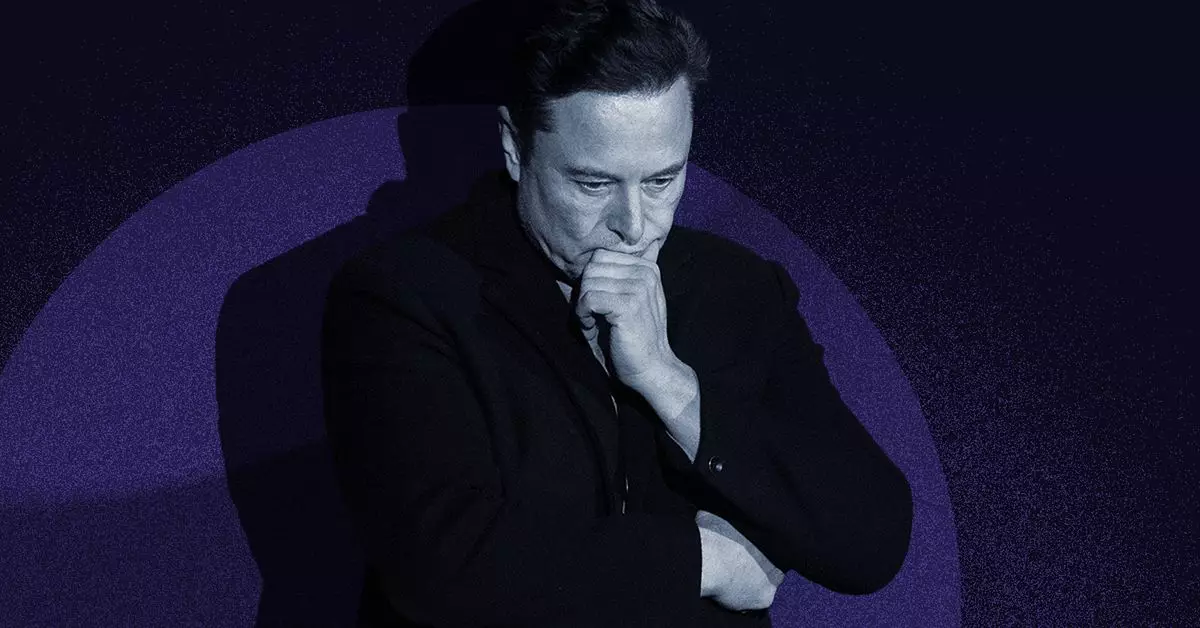Elon Musk, a name synonymous with innovation and controversy, has embarked on yet another venture that raises eyebrows across political and technological spectrums. As co-lead of the nascent Department of Government Efficiency (DOGE), Musk is signaling a crusade against perceived government inefficiencies. However, his methods, particularly those involving social media, invite scrutiny regarding their ethical implications and potential consequences for public servants.
Recently, Musk made waves on X, formerly known as Twitter, by targeting specific government employees—like Ashley Thomas, the Director of Climate Diversification at the US International Development Finance Corporation. A post highlighting Thomas’s role was shared by a user and quickly amplified by Musk, who dismissed her position as an example of “fake jobs.” With over 33 million views, his comment had the potential to set off a cascade of public ridicule and harassment toward Thomas, forcing her to privatize her social media accounts.
This tactic of public shaming raises several ethical concerns. While Musk may argue that he is simply exercising “free speech” and holding government employees accountable, the reality is that such public targeting can lead to real-world consequences, including harassment and threats directed at individuals who may have limited means to defend themselves against a massive online following.
The aftermath of Musk’s comments is telling. As expected, Thomas became a focal point for online harassment, with her professional credibility undermined by a wave of memes and derogatory posts. Everett Kelley, president of the American Federation of Government Employees, expressed concern that Musk’s actions promote a culture of fear among public servants. Such a hostile environment could lead to the silencing of voices that contribute to public welfare, stifling governmental effectiveness in the process.
Moreover, Musk’s strategy of public complaints can create a chilling effect. Employees may feel pressured to conform and avoid taking initiatives that might attract the attention of powerful individuals on social media. Instead of fostering transparency and efficiency within government structures, his approach could sow discord and insecurity.
Musk and his co-lead at DOGE, Vivek Ramaswamy, have stated intentions to conduct much of their work in public, potentially leading to further targeting of civil servants. This raises the question of whether such transparency serves democracy or becomes a tool for personal vendettas. Historically, social media has empowered individuals to amplify their opinions and grievances; however, when wielded by influential figures, it can also escalate to harassment and intimidation.
Musk’s actions illustrate a broader issue concerning the influence of those with vast platforms. While the call for government efficiency may seem noble, the means by which one pursues this aim can define its success or failure. Social media should serve as a conduit for constructive dialogue rather than a battleground for personal attacks.
Elon Musk’s recent foray into government affairs through social media invites critical examination of accountability in a digital age. The intertwining of personal opinion and public safety underlines the need for a more responsible approach to discourse in the realms of governance and technology. As we reflect on Musk’s methods, one must contemplate: can efficiency and empathy coexist in today’s hyper-connected society? The answer may very well dictate the future of both public service and corporate influence in political matters.

